- Home
- Johnny D. Boggs
The Raven's Honor Page 5
The Raven's Honor Read online
Page 5
Margaret placed the back of her hand on his forehead. “You are certain you feel all right?”
“Dreams,” he told her. “Strange dreams and a tiring night.”
She bent over and kissed the top of his head. “Wash your face and hands, go to the kitchen, and eat the breakfast Aunt Liza has made you. Clean your plate, Sam Houston. Then upstairs and take a nap. You are too old to be sleeping in a chair.”
As she walked toward the door, he called her name. When she turned, he pointed toward Chapman’s portrait of Crockett.
“We should have this returned to the Capitol,” he said. “I mean, it cannot go to Cedar Point with us.”
She glanced at the painting and shrugged. “Do you not think Clark would want it?”
“David Crockett would not waste his time with that dunderhead.”
* * * * *
With wounds cleaned and wrapped, face shaved, Sam Houston stood in the entryway by the staircase, leaning on the crutch and directing his daughter Maggie and the slave Pearl as they lowered the oil landscape off the wall and to the blanket on the floor. Half-heartedly, he wished the girls might drop the painting in such a way that it would catch the corner of the table and rip the canvas.
They didn’t.
“That’s good work, girls,” he told them. “Now …”
Someone pounded on the door. Houston stopped the curse on his lips. Pearl looked at the door, and then down the hall, hoping Joshua, Jeff, or Lewis might show up to take charge, but Houston started hobbling. “I will see to this,” he said.
After opening the door, Houston gawked at Noah Smithwick, armed for bear.
At least, Smithwick came alone. Even better, no one passed down the street. In Austin, however, on a Tuesday afternoon, Colorado Street would not remain empty. Quickly Houston let Smithwick enter, and slammed the door shut.
“By God, man, what are you doing with …?” Houston stopped himself. Pearl and Maggie gawked. Margaret, holding the hems of her skirt, came down the stairs, but paused on the landing. Her mouth fell open.
The lean man, with a face bronzed by years in the sun and eyes set too close together, held a rifle in his right hand, a shotgun in his left. He carried a bowie knife sheathed on his left hip, two Paterson Colts tucked inside his waistband, and a Walker Colt—a revolver most people carried in a saddle pommel—holstered on his right hip.
“I got a hundred men waitin’,” Smithwick thundered. “You give us the word, Sam, and, damn it all to hell, we’ll get the Capitol back for you.”
“Noah,” Houston said. When the warrior took a moment to shift the tobacco from one cheek to another, Houston pointed to the open door to the library. “In there.”
The wiry man moved like a catamount into the room, speaking as he walked. “Damn right. We’ll shoot down Clark and anybody else who gets in our way. This ain’t right, Sam. You know it. I know it. All of us know it. You just say the word, Sam. We’ll make them sons of bitches pay the piper. I was with you in 1836, and I’m with you right now. So, you tell me what you want us to do and who you want me to shoot dead first.”
“My word …” Pearl whispered.
Houston did not know whether he should laugh or cry. He looked up the stairs at his wife, shrugged, and started after Smithwick. He stopped at the doorway, however, suddenly embarrassed by the crutch he used. So he held it out, and Maggie instinctively took it. Gathering his composure, Houston went into the Green Room, closing the door behind him.
First, he held out his hands and accepted the Mississippi rifle, which he examined, approved with a nod, and rested against the cold fireplace. A good lawyer had to think fast on his feet. So did senators and governors and even presidents of republics. Even retired old legends.
“Noah,” he said, “you tell the boys that I appreciate them. All of them. And I sure appreciate you, old friend.”
“What they done was wrong, Sam,” Smithwick said. “You know it. I know it. Law-breakin’ sons of bitches.”
“Yes, Noah, but … any man who would overthrow the law shall not learn that lesson from me.”
Smithwick blinked his narrow eyes, and again shifted the tobacco in his mouth from one cheek to the other.
“That’s from a speech I thought about giving the other day, at the Capitol,” Houston told him. “But I decided to keep my damned mouth shut. I was going to tell those sons of bitches what they could do with their oath to this farce called the Confederate States of America. But I couldn’t. We’re too old for war, old hoss.” Old hoss? He glanced at the portrait of Crockett, moved closer to Smithwick, and put an arm over the lean man’s shoulder. “We’re Texans. We are all Texans.”
He remembered how he had stayed up the night before the Confederate leaders had shouted his name in the Capitol.
* * * * *
He had prayed. He had walked around this very room, and up and down the halls, door to door, pacing across the long rug—now rolled up against the wall beneath the painting in the entry hall—in his stocking feet. Back and forth. Back and forth. Thinking. Praying. Cursing. Plotting. And then that fateful morning, before heading to the office for what he knew would be his last day as governor, he had seen Margaret waiting for him at the foot of the stairs.
“Margaret,” he had told her, “I can never do it.”
* * * * *
“Noah,” he now said, “I can never do it. In 1846, I went back into the Union with the people of Texas. Now I go with them, out of the Union. We stand by Texas, my friend.”
Now, he wondered why he had even asked George Giddings to fetch those other men from a good night’s sleep. He could not take up arms against fellow Texans.
“You ain’t …?”
Houston looked deeply into the old war horse’s face.
“You ain’t.” Smithwick sought a place to spit, but the cuspidors had been removed. He did not swallow the juice, nor did he spit it onto the floor. “You ain’t wantin’ nobody to fi’t with?”
“Gloom’s before us, Noah,” Houston said. “But Texas has spoken. Go home, Noah. Enough blood will be spilled directly. Let’s not start it here.”
He picked up the rifle, and walked to the library door, which he held open for Noah Smithwick. The warrior took the weapon, shook his head, and stepped into the entryway, now abandoned. Even Margaret had retreated upstairs.
Houston opened the front door, made sure the street remained empty, and walked outside. Smithwick followed, and quickly spit into the bushes. The battle-hardened Texan began whispering to himself as he descended the stairs and then turned back around.
“Bad days, Gen’ral,” Smithwick said. “You sure you don’t wants us to fi’t with you?”
“Maybe later, Noah. But not now. Let’s see how this all plays out.”
“Hell,” the fighter said. “Things ain’t like they used to was, Gen’ral.”
Houston wished Smithwick would get to his buckboard and disappear before someone—a reporter or, even worse, a member of the Confederate congress—saw him and his arsenal. Houston held his breath until Smithwick pitched both long guns into the back of the wagon, and climbed into the driver’s box.
A phaeton passed him. A couple walked on the other side of the street, arm in arm. A horseman trotted down toward the Capitol. None paid any attention to Noah Smithwick as he released the brake and drove away. None paid attention to Sam Houston, soon to be exiled governor, standing on the front porch of the tall mansion.
Chapter Seven
March 31, 1861
“‘Hell is empty,’” he whispered to Margaret, “‘and all the devils are here.’”
“Hush.” She took his arm in hers before leading him down the steps. “You should not swear on the Sabbath. You should not swear on any day.”
“I was not swearing,” he told her, “but quoting Shakespeare.” Yet inwardly he cursed as he led his wife
toward the caravan of wagons—some overloaded and listing so much, a strong gust might send them toppling over. Across the street waited the gawkers, staring, whispering, and a few shouting.
“Be gone, traitors!”
“Ignore them,” Margaret pleaded.
He said nothing, though his insides blazed with fury.
Twelve slaves and the children waited by the wagons. Houston walked his wife to the yellow coach. He had ordered it back in 1843 from New Orleans—a double barouche with four seats and a double harness. The yellow paint was chipping, the doors squeaked when they were opened, and the damned thing never did much at keeping out dust, wind, heat, or cold. He had been ashamed when he had first seen it after the wagon arrived in Galveston, for he had expected a fine wagon that befitted a woman like Margaret, who had been chauffeured across Alabama in expensive, beautiful conveyances.
“I should get a new carriage,” he told her.
“It is still ‘tolerably genteel,’” she told him, using his words from so many years ago.
Lewis opened the door, and the slave and Houston helped Margaret inside.
“We goin’ now Master Sam?” the old slave asked as he stepped away from the carriage.
“We’re going.” Staring off toward the Capitol’s flagpole, Houston sighed. No Stars and Stripes flew this day, just that plain blue flag with the star in the center flapping in the wind. As he walked toward his own coach, the gatherers lining the sidewalk hissed.
Voices of young men in song grabbed his attention, and he stopped to find a group of men in mismatched uniforms marching down the sidewalk.
Then hoe it down and scratch your gravel,
To Dixie’s land I’m bound to travel.
Look away! Look away! Look away! Dixie land.
They shouldered muskets, fowling pieces, and even one hoe, but the man marching alongside them knew what he was doing, and wore an old uniform from the war against Mexico.
“Here comes your firin’ squad, Sam Jacinto!” someone from the crowd barked.
Laughter rocked the line.
He stood, observing but not commenting. Ordered to halt, the young, pockmarked one with a Pennsylvania rifle that was taller than he was tripped over his brogans, knocking the kid in front of him off the curb while he dropped to his patched knees. Both quickly jumped back into line and stood in something that might have resembled attention. Their commander barked.
The people on the sidewalks turned their attention to the raw, young Texas militia.
Finally, the drillmaster, James W. Throckmorton, removed his Hardee hat with the purple ostrich plume, and grinned at Houston.
“General,” Throckmorton said.
“Doc,” Houston said.
They shook hands.
Houston pointed at the crowd. “They think you’ve come to shoot me.”
After donning his hat, Throckmorton whispered, “They couldn’t hit a barn door ten feet away.”
“So you have joined the cause,” Houston said.
The doctor shrugged. “My state,” he said, “right or wrong.”
Houston wondered if his face looked as gray as he felt.
“Cedar Point?” Throckmorton asked.
“Eventually,” Houston said. “Margaret desires to see her mother, so we shall journey to Independence after stopping at Bastrop to see Sam Junior on our way there.” Looking at the young Texas boys Doc Throckmorton would try to mold into soldiers, Houston saw his oldest son’s face in all of them.
“I hope to see you in better days, General,” Throckmorton said.
“Better days.” Houston again shook hands with his old friend, and walked down the street to find Jeff waiting by his black top buggy.
The militia resumed marching, Throckmorton barked more orders, and the lads sang again, joined by the crowd.
I wish I was in Dixie, hooray! Hooray!
In Dixie’s land I’ll take my stand,
to live and die in Dixie.
The exiled governor’s cortege began.
Two blocks later, Houston ordered Jeff to stop.
“Nash,” he called out to the slave driving the wagon immediately behind him, “continue on!” He waved the first wagon past, and when the yellow barouche stopped alongside Houston’s buggy, Margaret opened the door.
“We’ll catch up,” Houston told her.
She gave him a questioning look. Margaret had worn her best dress this morning, although she had shunned a hoop underneath her skirt for the comfort of the ride east. Her hair remained parted in the middle, with finger curls flowing from tucking combs of silver. She held a handkerchief in her left hand.
“Don’t let Nash get in a hurry,” Houston said, more to Lewis than Margaret. Asthma plagued his wife, and this march appeared to be going out like a lion instead of a lamb. To his wife he tried a reassuring smile. “I desire to show Jeff something,” he explained. “We shan’t be long. Likely we shall rejoin you before you have reached Bastrop.”
“Very well, Sam.” She closed the door.
After the other wagons passed, Houston pointed at the next street.
“Since we’re both out of the office, Jeff,” Houston said, “we have time on our hands. Turn there. I’ll give you directions.”
“Where we goin’, Master Sam?”
“The Treaty Oak,” Houston answered.
* * * * *
The cluster of oaks shaded Baylor Street near the Colorado River, and when Jeff stopped the buggy, Houston stepped down. He gripped the side of the wagon with his left hand and raised the cane Jeff had placed in the wagon with his right.
“The old capitol stood west of here,” Houston said, “back when Texas was a republic. You see that tree yonder?”
“Yes, sir, Master Sam. Can’t miss that one. Must be fifty feet high.”
“Nearer sixty. That, Jeff, is the Treaty Oak.”
The leaves rustled in the wind as Houston walked to the tree. Sensing that Houston wanted some time alone, Jeff stayed in the buggy. Houston entered the shade long before he came to the trunk, and, on a whim, paced off the distance of the diameter of the live oak’s canopy.
“A hundred and thirty feet,” he said, marveling and breathing in deeply, trying to savor the fragrance of oak leaves in the spring. He circled the tree, stopping once to lean against it, then walked around it again before staring at a limb that had fallen during some recent storm. Groaning, his joints popping, he sat on the limb and leaned back, resting against the massive trunk. In the years before Houston arrived in Texas, folks said, Stephen F. Austin had met with Indians here to negotiate a treaty with the Tonkawas and Lipans. Reaching down, Houston began plucking leaves from the fallen branch.
He had heard that during a full moon Indians would gather leaves from this tree to brew a tea that would protect the warriors in battle. He let the wind carry the leaves toward the river.
Tilting his head, he looked at the limbs and leaves, and thought about John James Audubon.
* * * * *
Back in the early spring of 1837, the naturalist and his twenty-five-year-old son had arrived at Galveston Bay aboard a revenue cutter, and Samuel Rhoads Fisher, then the Republic’s secretary of the Navy, had brought the artist and his son to see Sam Houston. Naturally, as president of a republic barely one year old, old Sam Jacinto had left Houston City and escorted the Audubons across Texas.
He had watched the elder Audubon shoot many a bird, and Houston had felled a few, too. The artist proved such a marksman that Houston had quipped, “We could have used you at San Jacinto, sir.” Old Audubon had proved quite a humorist, as well, for he had quipped back, “But had I shot Santa Anna dead, Mister President, where would you and Texas be today?”
Mostly, however, Houston had marveled at how deftly the artist could look at the birds he had killed and quickly sketch their likenesses—
teals and ducks, herons and stilts, woodpeckers and sandpipers, spoonbills and buntings.
Houston had brought the Audubons here.
“How old do you think this live oak is, sir?” Houston had asked.
The naturalist had whispered, “Five hundred? Four? It should live hundreds more. It should never die.”
* * * * *
A blue jay began squawking from somewhere high, hidden by the green leaves and stout branches. Houston tried to stand.
“Hell’s fires.” He tried again. Then, sighing and cursing and thanking the Lord that Margaret was not here to hear his blasphemy, he waved Jeff over.
After the slave had helped Houston to his feet, Houston pointed the cane at the tree. “Jeff,” he lied, “this is why I brought you over here. I wanted you to see the Treaty Oak.”
The slave stared up at the massive oak in wonder.
“For hundreds of years, Indians have been coming here. For war councils and war dances. Weddings, I imagine. I’ve often wondered how many peace pipes have been smoked under its shade.” He leaned against the cane. “It must be looked upon by those Indians as a holy tree.”
“I reckon you’s right, Master Sam. I seen me a lot of big trees in my life and all, but I ain’t never seen nothin’ as big as this one. How old you reckon it is?”
“A great naturalist I once knew guessed five hundred,” Houston answered. “But I think it is as old as Eden.”
* * * * *
They caught up with the caravan a few miles east of Austin, and followed the road that paralleled the Colorado River. Post oak, loblolly pines, and junipers replaced the buildings and civilization that was, or at least had once been, Austin. By the time they reached Bastrop County, they saw no one, which Houston had expected. For as long as he could remember, the only town in Bastrop County was Bastrop.
Over the past three decades, trees had been thinned out, mainly to help build Austin. Yet a man could still get lost in the thickets and hills, or drowned in the river. It remained a dangerous place.

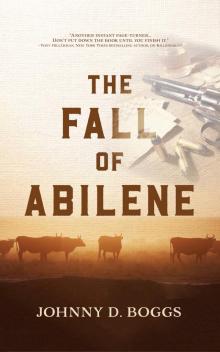 The Fall of Abilene
The Fall of Abilene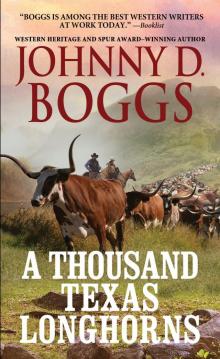 A Thousand Texas Longhorns
A Thousand Texas Longhorns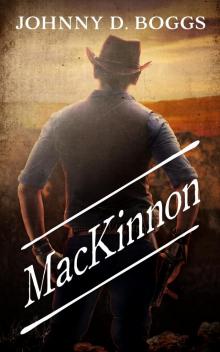 MacKinnon
MacKinnon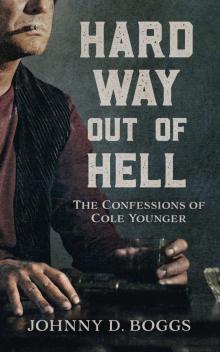 Hard Way Out of Hell
Hard Way Out of Hell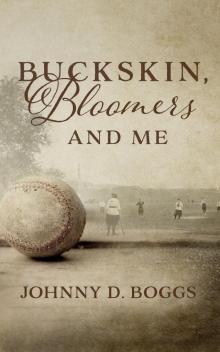 Buckskin, Bloomers, and Me
Buckskin, Bloomers, and Me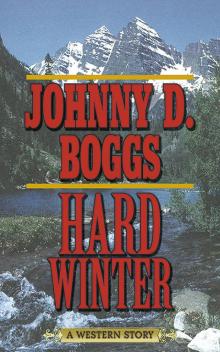 Hard Winter
Hard Winter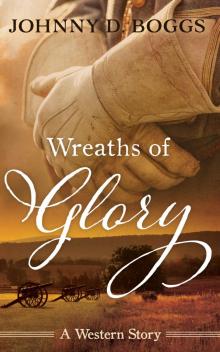 Wreaths of Glory
Wreaths of Glory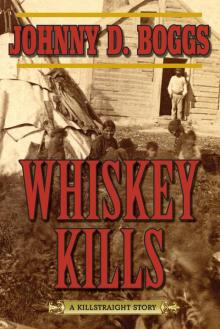 Whiskey Kills
Whiskey Kills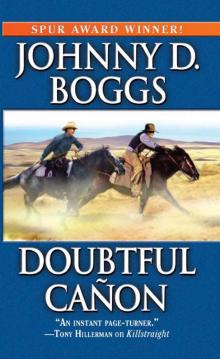 Doubtful Canon
Doubtful Canon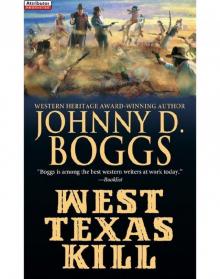 West Texas Kill
West Texas Kill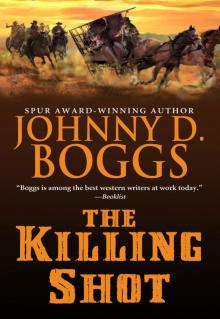 The Killing Shot
The Killing Shot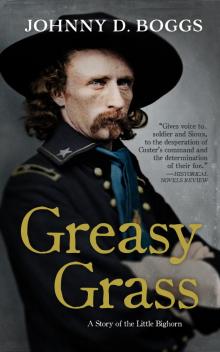 Greasy Grass
Greasy Grass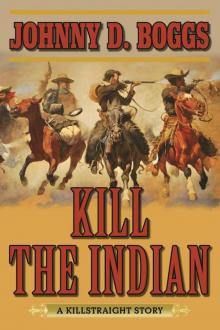 Kill the Indian
Kill the Indian Return to Red River
Return to Red River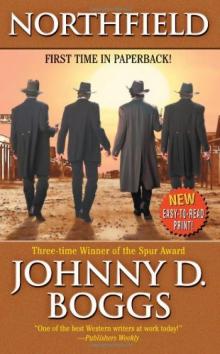 Northfield
Northfield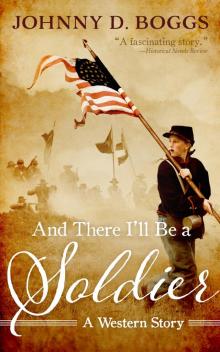 And There I’ll Be a Soldier
And There I’ll Be a Soldier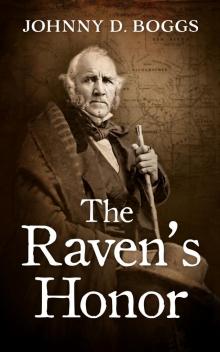 The Raven's Honor
The Raven's Honor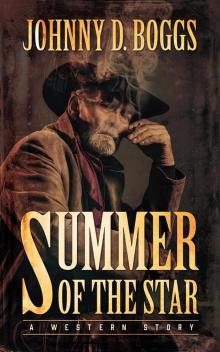 Summer of the Star
Summer of the Star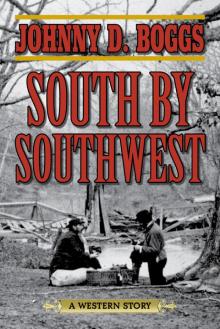 South by Southwest
South by Southwest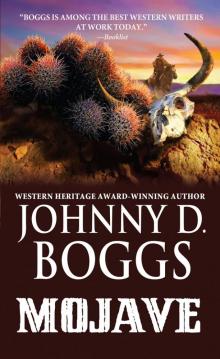 Mojave
Mojave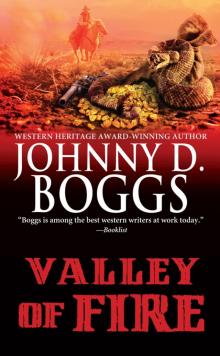 Valley of Fire
Valley of Fire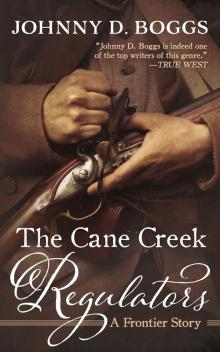 The Cane Creek Regulators
The Cane Creek Regulators